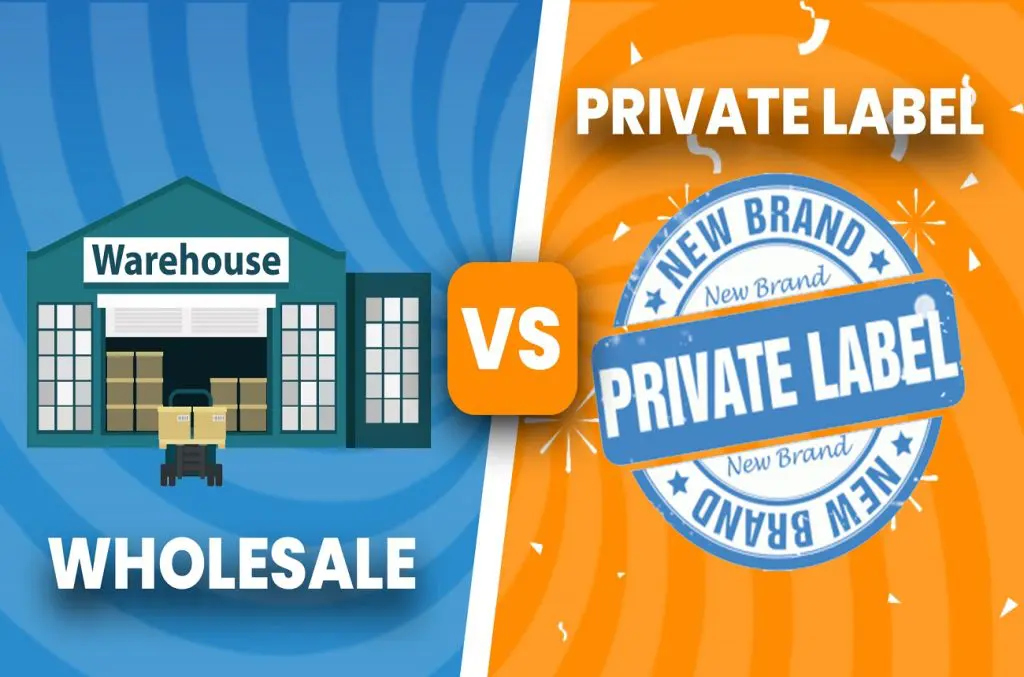Verify Your Email Address
Please ensure to verify your email for confirmation. We recommend checking your spam and trash folders as well.

In the ever-evolving world of business, different strategies and models have emerged to cater to the diverse needs of entrepreneurs and companies. Two such strategies, Wholesale and Private Label, are often encountered in the world of commerce. Understanding the fundamental differences between these two approaches is crucial for making informed business decisions.
Wholesale is a business model where products are purchased in large quantities, typically from manufacturers or distributors, and then resold to retailers or consumers, often at a marked-up price. The primary objective of wholesale is to facilitate the rapid distribution of products.
Cost Efficiency: Buying in bulk usually translates to lower per-unit costs, which can lead to higher profit margins.
Wide Product Variety: Wholesalers often offer a wide range of products, including established brands, which can attract a broad customer base.
Inventory Management: Wholesale can be an effective way to clear excess inventory, helping businesses avoid losses.
High Minimum Orders: Wholesale transactions often require substantial upfront investments, making it challenging for small businesses.
Competition: The wholesale market is highly competitive, with many players vying for a share of the market.
Defining Private Label
In contrast, Private Label involves creating and marketing products under your brand name, but these products are typically manufactured by third-party companies. This approach allows businesses to sell products with their unique branding.
Brand Control: Private label affords complete control over branding and marketing strategies, enabling businesses to differentiate themselves in the market.
Profit Potential: With a well-executed private label strategy, businesses can enjoy higher profit margins compared to traditional retail.
Customization: Businesses can tailor products to meet specific market demands, catering to niche audiences effectively.
Initial Investment: Developing a private label brand requires an initial investment in branding, marketing, and product development.
Quality Assurance: Maintaining product quality and consistency is crucial to uphold the brand’s reputation.
To better understand the disparity between wholesale and private label, let’s explore the key differences between these two business models:
Wholesale: In wholesale, you are typically selling existing brands or products created by others.
Private Label: Private label allows you to create and own your brand, giving you complete control over branding and marketing.
Wholesale: When dealing with wholesale products, customization options are often limited as you are selling products created by others.
Private Label: With private label, you have the flexibility to customize products to meet specific market demands and stand out from competitors.
Wholesale: Profit margins in wholesale tend to be lower due to price competition, as many wholesalers sell similar products.
Private Label: Private label offers the potential for higher profit margins, as you can set your pricing strategy and differentiate your brand.
Wholesale: The initial investment required for wholesale is typically lower than that of private label, but it comes with limited brand control.
Private Label: Creating a private label brand demands a higher initial investment in branding, marketing, and product development, but it provides greater brand control.
Wholesale: In wholesale, the emphasis is primarily on distribution and moving products efficiently, with less emphasis on branding.
Private Label: Private label businesses place a strong focus on branding and marketing strategies to build a unique brand identity and attract loyal customers.
In conclusion, choosing between wholesale and private label depends on your business objectives, resources, and market niche. Wholesale is an efficient way to enter the market quickly, especially for businesses with limited capital, as it provides access to established brands and a diverse product range. On the other hand, private label offers the opportunity to create a unique brand identity, potentially yielding higher profit margins in the long run.
To succeed in either approach, thorough market research, a deep understanding of your target audience, and careful consideration of the advantages and challenges of each strategy are essential. Whether you opt for wholesale or private label, success ultimately hinges on your ability to navigate the complexities of the business world and adapt to the changing needs of your customers.
Read More of Cosmetic Business Articles:
How to price private label cosmetic products?
How much does it cost to start a makeup line?
A Step-by-Step Guide to Designing Your Own Eyeshadow Palette Packaging
The Ultimate Guide to Making Your Own Eyeshadow Palette: Costs and Supplies

High Quality, Low Price, No Minimum, One-stop Private Customized Cosmetics Shopping Website.
| Cookie | Duration | Description |
|---|---|---|
| cookielawinfo-checkbox-analytics | 11 months | This cookie is set by GDPR Cookie Consent plugin. The cookie is used to store the user consent for the cookies in the category "Analytics". |
| cookielawinfo-checkbox-functional | 11 months | The cookie is set by GDPR cookie consent to record the user consent for the cookies in the category "Functional". |
| cookielawinfo-checkbox-necessary | 11 months | This cookie is set by GDPR Cookie Consent plugin. The cookies is used to store the user consent for the cookies in the category "Necessary". |
| cookielawinfo-checkbox-others | 11 months | This cookie is set by GDPR Cookie Consent plugin. The cookie is used to store the user consent for the cookies in the category "Other. |
| cookielawinfo-checkbox-performance | 11 months | This cookie is set by GDPR Cookie Consent plugin. The cookie is used to store the user consent for the cookies in the category "Performance". |
| viewed_cookie_policy | 11 months | The cookie is set by the GDPR Cookie Consent plugin and is used to store whether or not user has consented to the use of cookies. It does not store any personal data. |
Please ensure to verify your email for confirmation. We recommend checking your spam and trash folders as well.